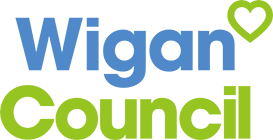Buy DBS Checks Online
DBS checks are vital for business, but they don’t have to be time consuming or expensive. Choosing CBS will make your life easier. All the hard work is done for you, freeing up your valuable time.
Select a DBS check on the right to learn more →
Or register for free today and discover why our pay-as-you-go DBS checks system is the solution you’ve been looking for.
Below, is all the information you will need relating to DBS checks. However, if you wish to speak to a member of our team, click the to get in touch. Our team will be happy to help and answer any of your questions.

Basic Checks £18 Plus Admin Fee
Non-job-specific checks for any purpose, applied for on behalf of an employee.

Standard Checks £18 Plus Admin Fee
The ‘standard’ disclosure detailing all criminal history, warnings, reprimands and convictions.

Enhanced Checks £38 Plus Admin Fee
The standard checks, plus a review of barred lists and any relevant info held by local police.
What Does DBS Stand For?
DBS is short for ‘Disclosure and Barring Service’. This is an agency part of the UK Home Office which carries out specific checks on individuals.
What is a DBS Check?
A Disclosure and Barring Service check (or DBS check for short) is the term used for the analysis and record of a person’s past, looking specifically at any convictions, cautions, reprimands and warnings they may have received.
In some instances, the DBS run checks against the adult and children’s barred list, depending on the role of an individual or the job for which they are applying.
DBS checks, also known as disclosures, may also include soft intelligence held by the police. This information is not always contained within the Police National Computer (PNC). For example, a person may not have been convicted of a particular offense, but a local police force may have intelligence which should be disclosed as it may affect the suitability of a person for a particular job.
What is the Difference Between a CRB Check and a DBS Check?
There is no difference between a CRB and DBS background check.
After the publication of the Protection of Freedoms Act 2012 many changes were brought about. One of which was the coming together and merge of the Criminal Records Bureau (CRB) and the Independent Safeguarding Authority (ISA), under the new title of the Disclosure and Barring Service (DBS).
The new entity took on the responsibilities of the previous fractions and continued to complete the checks and functions, apart from the discontinued ISA Registration Scheme.
Therefore, in its simplest of terms, this was a rebranding of the organisation.
Are There Different Types of Criminal Record Checks?
Yes. There are three levels of disclosure. The level you require will depend on the job and the contact of care you will provide. These levels of disclosure are:
Basic level disclosure – this is a non-specific check that is available to anyone who requires certification. Basically, it is available to anyone for any purpose. It is commonly used for personal licence holders, couriers or similar. Disclosure Scotland produce this level of Disclosure, as well as the DBS from June 2017.
Standard level disclosure – this level of disclosure is subject to eligibility in accordance to legislative criteria. This more in-depth check is often required for careers such as accountants or solicitors.
Enhanced level disclosure – this detailed check is also subject to eligibility in accordance to legislative criteria. Individuals who wish to work with vulnerable people will require this disclosure.
Enhanced level disclosure and barred list check – the most comprehensive of all disclosure checks, this disclosure will also look at the barred lists. This is necessary for an individual intending on working in a ‘regulated position’ where they have a duty of care and responsibility for vulnerable people.
Please be advised that standard and enhanced checks are not available to all. This service can only be accessed if the person’s role is supported by legislation. For example, an employer must consider whether they are allowed by law to access this level of criminal information for a particular role.
What if my Disclosure Certificate Was Completed by the CRB, not the DBS?
This does not necessarily mean a new DBS check is required. The requirement for DBS check may be dictated by your employer or regulator. Simply because your certificate shows the CBS logo rather the DBS logo does not necessarily make this out of date.
Who Can Request a DBS Check?
Organisations can request for individuals to be checked if they will be working or volunteering in a position that is exempt under the Rehabilitation of Offenders Act 1974. This is valid for current staff, job applicants and volunteers.
Can Individuals Obtain a DBS Check on Themselves?
No. Individuals cannot request a personal DBS check. These checks were designed to aid organisations make recruitment decisions, therefore only an employer or recruitment company may apply.
Here at CBS we can, however, offer a basic level disclosure. This is because these checks are not job specific and, can be used for any purpose.
Should We Request DBS Checks on Our Staff?
Whether this is a requirement, or not, will depend on your industry. However, it is recommended that all job applicants, staff and volunteers within an organisation are screened in one way or another. This may not always be a DBS check as the law may not support it.
Your organisation may opt to undertake a basic level disclosure only. Alternatively, we can provide a host of additional screening products.
How Long Does a DBS Check Take?
If you decide to apply for a DBS check online using our services, expect a timescale as follows:
• 85% of enhanced disclosures returned within 5 working days
• 95% of standard disclosures returned within 5 working days
• 80% of basic disclosures returned within 10 working days
On rare occasions, an application may exceed 60 days. In the unlikely event this happens, we can escalate the application along as a priority.
Our average across the UK is 5.4 days for an enhanced check, with several thousand being returned in less than 24 hours every month.
If you currently have a DBS check in progress, you can track the progress of your application here
Is There a DBS Fast-Track Service Available?
As stated above, disclosures should take around a week to complete. There are no fast track options available.
If an individual is required to start a role immediately a List 99 or Adult First check may be considered.
What is a DBS Adult First Check?
The Care Standards Act allows the Department of Health to maintain a list of people who are perceived to be a threat to, and should not work with, vulnerable adults. An Adult First Check refers to this, in particular looking at the health sector.
These checks should only be done in exceptional cases when they are absolute necessary. If this is the case, once requested an email will be issued with one of two responses:
Option 1: Employer must wait for the DBS certificate
Option 2: No match exists for this person on the current Vulnerable Adults Barred List
If Option 1 is received, something may have been found, and further investigations may be required to determine if the person is indeed on the barred list.
A DBS Adult First Check issued through CBS will take anywhere up to 2 days, however, most requests are completed within 24hours of submission. Please note: Checks are not done on weekends or bank holidays.
Who Receives the DBS Certificate?
Although an organisation requests the disclosure check, the certificate is sent to the applicant’s home address.
Before this is received, you will be sent an online notification stating that the check has been completed and whether any criminal information has been found and held. Our solutions will provide you with a full audit trail and a printable summary of the disclosure check.
What ID Documents Are Required to be Validated for a DBS Check?
ID is required to be validated with every disclosure check, and there are 4 routes in place for doing this. However, we would recommend that Route 1 is taken wherever possible, as this will reduce costs and ensure a timely service. For more information about the documents required for an online DBS check application see our post Check and check again: What you need to know about updated DBS ID checks
Who Pays for Disclosure Applications and How is This Done?
In most cases, the organisation requesting the check will pay for the disclosure. However, here at CBS we can provide an alternative solution whereby we can request payment from the individual directly.
Can I Get a Free DBS Check?
CBS cannot provide DBS checks for free. We will charge an administration fee. However, we can remove the DBS fee from your costs if you or the person you are employing is a volunteer.
How Do I Get a DBS Check for my Personal Licence?
You will only need a basic level disclosure for a personal licence.
Can Disclosure Certificates be Reprinted by the DBS?
Yes. If you did not receive the original certificate for whatever reason, you can request a reprint from the DBS directly.
To order your reprint, email DBSReprints@dbs.gsi.gov.uk
If the original certificate was received, but you have lost or damaged it, the DBS will not provide a reprint. Reprints from the DBS can only be requested up to 90 days after they were first issued.
What Jobs Require a DBS Check?
A number of different jobs may require a DBS check. Read more about this in our article: 10 Things to Know About Background Screening
Do I Need to Apply for More than One Type of DBS Check?
No, you should only need to make one application.
What’s the Difference Between Spent and Unspent Criminal Convictions?
A spent conviction has reached a set period defined by the Rehabilitation of Offenders Act 1974 and has been removed from an individual’s criminal record. Its unspent counterpart has not reached this defined period yet and therefore will appear on DBS checks.
Why Do We Need DBS Checks?
DBS checks help employers make safe recruitment decisions, ensuring only those who should have access to children or vulnerable adults do and preventing those who may be deemed unsuitable.
What Is an Exempted Question?
An ‘exemption question’ refers to when a registered body asks an individual to reveal their full criminal history.
Speak to a Member of our Team
Have more questions? Then get in touch with our friendly and knowledgeable team today.

How Complete Background Screening Achieves Accreditation: A Comprehensive Overview
Complete Background Screening (CBS) goes through rigorous processes to secure accreditations that validate our commitment to quality, security, and industry compliance. Accreditation in the background screening industry is a mark of reliability, demonstrating that the company adheres to the highest standards in data protection, screening accuracy, and customer service. Below is a detailed look at […]

 Contact Us
Contact Us















